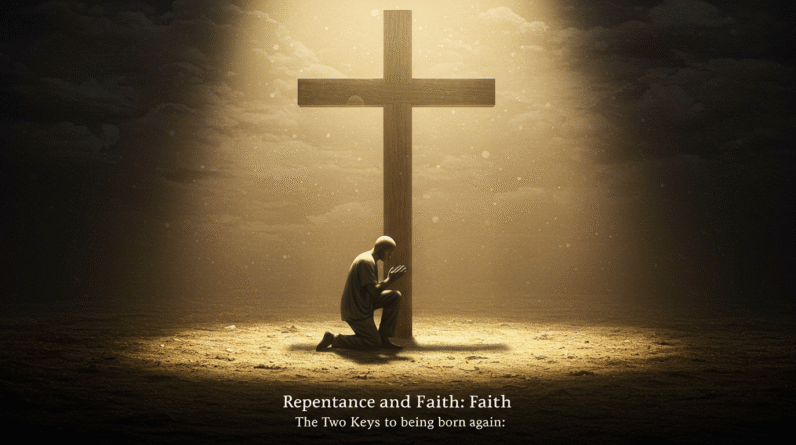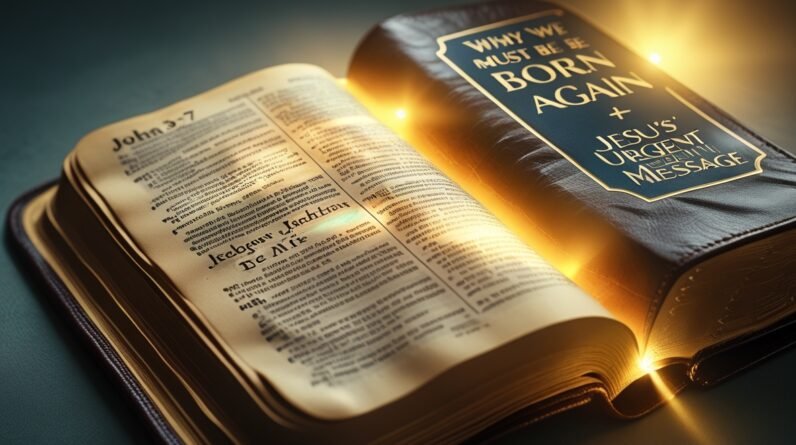Explore the impact of spoken belief in salvation. Discover how verbal declarations shape faith, community, and personal spirituality. Dive into transformative insights today.
Confessing with the Mouth: Understanding the Role of Declaration in Salvation
Have you ever pondered the power words hold? In everyday conversations, the right words can uplift a spirit, mend a broken heart, and even influence the course of events. But when it comes to matters of faith and spirituality, words assume an even greater significance. Let’s journey into the depths of what it means to confess with the mouth in the context of salvation and whether this declaration plays a pivotal role in one’s spiritual journey.
The Significance of Confession in Salvation
In the labyrinth of religious teachings, the act of declaring one’s faith isn’t merely a ritualistic practice. It’s a declaration of commitment, a vocal and conscious affirmation that anchors your beliefs. Why might this be essential? Salvation, a central theme in Christian theology, encompasses both belief and declaration. But beyond that, it’s about transformation—both inward and outward.
📖 Key Verse: Romans 10:9-10
“For if you confess with your mouth, ‘Jesus is Lord,’ and believe in your heart that God raised him from the dead, you will be saved. For it is with your heart that you believe and are justified, and it is with your mouth that you profess your faith and are saved.” — Romans 10:9-10
This guiding scripture sets the foundation for understanding the duality of faith and declaration in the journey of salvation. As you reflect on this, consider how belief and communication—both central to human experience—work synergistically to fortify spiritual pathways.
The Declaration of Faith as a Public Witness
Confession as an Act of Commitment
From a psychological standpoint, articulating one’s commitments aloud can solidify intentions and foster accountability. In the realm of faith, affirming your beliefs isn’t just for others to observe; it’s an act of personal resolution. Confessions made before a congregation or even within the solitude of one’s prayer reflect devotion.
The Impact of Public Pronouncement
Declaring your faith publicly can serve as a testimony to others. Your confession might inspire someone else on their faith journey or help them make a transformative decision. Think of it as throwing a pebble into a pond—while your declaration is the pebble, the ripples represent its far-reaching effects. Within a community setting, these shared declarations weave together the tapestry of collective faith.

The Heart, the Mouth, and the Dual Nature of Faith
The Heart’s Role in Belief
Let’s delve deeper. The heart, often perceived in religious texts as the seat of emotion and essence of life, plays a pivotal role in belief. It’s where faith is born and nurtured, a hidden yet powerful component. When Paul speaks of believing with the heart, he underscores the authenticity and depth of such belief. It moves beyond mere intellectual assent into the realm of experiential conviction.
The Mouth as a Channel for Faith
If the heart is the womb of belief, the mouth acts as its herald. It’s through the mouth that your deeply-held beliefs are externalized and shared. In verbalizing your faith, you are not just communicating with others—you’re also reinforcing your own spiritual understanding. This outward expression acts like a bridge, connecting personal faith to communal belief.
The Evolution of Confession Across Time
A Historical Perspective
Confession as part of faith isn’t a modern convention. Historically, it has played vital roles across different cultures and religions. Ancient Israelite practices included verbal contributions in their covenants with God, while early Christians risked persecution for their audacious declarations of belief in a risen Christ. This historical continuity speaks to the integrity and strength such declarations can provide, not just to individuals, but to religious communities as a whole.
Modern-Day Implications
In today’s digital age, the way we confess and communicate has evolved. Social media platforms become virtual pulpits where individuals declare their faith. While the medium may have shifted, the essence of confession remains—a reaffirmation of belief and an invitation for dialogue. Your digital footprint now holds spaces for these sacred declarations, potentially reaching more ears than any physical confession ever could.
Navigating Doubts and Challenges
Confession in Times of Doubt
It’s natural to encounter moments of doubt or hesitation in your faith journey. During such times, the act of confession might appear daunting or fraught with uncertainty. Yet, it is often in the articulation of your doubts and the declaration of your beliefs—even when unsure—that clarity is found. Confessing during these moments can be a powerful step towards reconciling internal conflicts and emerging with a fortified faith.
The Community’s Role in Nurturing Faith
Your confession of faith isn’t made in isolation. It is woven into a broader community context. Here, you find encouragement, support, and accountability. The shared languages of faith and declaration bind individuals together, creating a support network that bolsters each person’s spiritual journey.
Living Out Your Faith Through Confession
Continual Declaration
Confessing your faith is not a one-time event but an ongoing journey. As you grow in your understanding and relationship with the divine, each declaration serves as a milestone marking your progress. Whether expressed through prayer, conversations, or community worship, these continual affirmations keep your faith alive and dynamic.
Encouraging Others Through Your Testimony
Your personal story of salvation and faith, shared through confession, is a powerful tool that can encourage others. Each narrative, unique in its trials and triumphs, enriches the collective faith experience. By sharing your journey, you open doors for others to see faith in action, thus inviting them to embark on a similar path.
Conclusion: Embrace the Power of Declaration
Confessing with your mouth is more than mere words; it’s an act of faith, a declaration that unites belief, and an expression that transforms inward convictions into outward testament. This dual dance of heart and mouth solidifies faith, enabling you to walk your spiritual path with confidence and authenticity.
As you mull over the profound implications of this practice, consider how your declarations contribute to your spiritual journey. They might just be the tether that grounds you during tumultuous times or the beacon that guides you back to faith’s core.

🔍 Explore More Bible Insights:
✅ 1. The Role of Eliab – David’s Brother in His Journey to Facing Goliath
Tone: Relational, reflective, character-focused
🔹 “Family Tensions and God’s Purpose – Discover the Connection”
Read it here.»
✅ 2. What Jeremiah 29:11 Means for Us Today
Tone: Hopeful, encouraging, life application
🔹 “God’s Plans Still Stand – Find Your Hope Here”
Read it here.»
✅ 3. The Wise and Foolish Builders – A Strong Foundation in Faith (Matthew 7:24-27)
Tone: Foundational, practical, discipleship
🔹 “Build Your Life on the Rock – Keep Learning”
Read it here.»
✅ 4. The Roman Centurion at the Cross – A Moment of Revelation
Tone: Awe-inspiring, redemptive, gospel-centered
🔹 “From Witness to Believer – Read His Revelation”
Read it here.»
As a ClickBank Affiliate, I earn from qualifying purchases.
Acknowledgment: All Bible verses referenced in this article were accessed via Bible Gateway (or Bible Hub).
“Want to explore more? Check out our latest post on Why Jesus? and discover the life-changing truth of the Gospel!”








